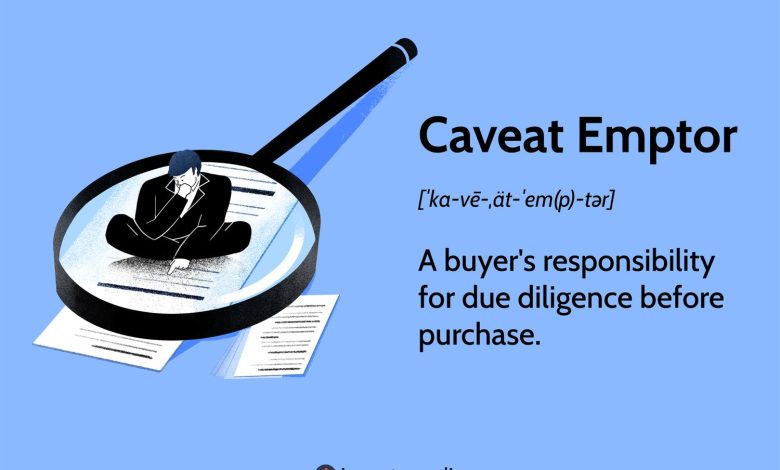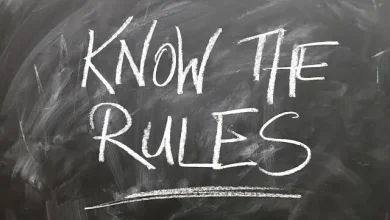Caveat Emptor Explained: The Buyer Beware Principle That Still Shapes Smart Decisions
Discover how the principle of caveat emptor protects your wallet, when it applies, and the modern laws that balance buyer and seller responsibility.

The phrase caveat emptor, Latin for “let the buyer beware” has shaped trade and commerce for centuries. At its core, it places the responsibility on buyers to carefully evaluate goods and services before handing over their money. While modern laws now protect consumers in ways that didn’t exist in the past, the essence of caveat emptor is still very much alive today.
In simple terms, it reminds us: don’t assume, inspect, question, and verify before you buy.
Why the Caveat Emptor Meaning Still Matters
Even in today’s world of strict advertising rules, warranties, and consumer protection agencies, caveat emptor plays a crucial role. It strikes a balance between buyer protection and personal responsibility. For consumers, it’s a wake-up call to avoid blind trust and to take ownership of their purchasing decisions.
Think of it this way: while laws can help if you’ve been deceived, they can’t save you from poor judgment. That’s why understanding the caveat emptor meaning keeps you alert in situations where guarantees are limited, like private sales, “as-is” real estate deals, or second-hand purchases.
Real-World Examples of Caveat Emptor in Action
- Online Shopping – Pictures can mislead, and descriptions may omit crucial details. Caveat emptor reminds you to check seller ratings, read product reviews, and verify return policies before buying.
- Used Car Purchases – “As-is” sales are the classic example. A buyer who skips an inspection could end up paying thousands in hidden repairs. Hiring a mechanic to inspect the car is due diligence at its best.
- Real Estate Deals – In “as-is” property transactions, caveat emptor shifts the burden to the buyer. Unless state laws require disclosure, you must uncover hidden defects through professional inspections and research.
Private Sales & Collectibles – Flea markets, garage sales, and antique shops often sell without warranties. Here, caveat emptor is front and centre, you either spot the fake or live with the loss.
Legal Exceptions to Caveat Emptor
Over time, courts and lawmakers realized that leaving all responsibility with buyers wasn’t always fair. That’s why there are key exceptions:
- Implied Warranties (UCC Protections)
- Merchantability – Goods must work for their ordinary purpose.
- Fitness for Purpose – If you rely on a seller’s advice, the product must fit that specific need.
- Fraud and Misrepresentation:
If a seller lies, hides defects, or gives half-truths, caveat emptor won’t protect them. Courts hold sellers accountable for deception. - Consumer Protection Laws:
- Truth-in-advertising rules
- FTC Used Car Rule
- State “lemon laws” for defective vehicles
- UDAP statutes banning unfair trade practices
These safeguards ensure buyers aren’t left powerless when sellers act dishonestly.
Jurisdiction Matters: How States Apply Caveat Emptor
Different states treat disclosure obligations differently, especially in real estate:
- Minimal Disclosure States: Sellers don’t have to reveal every known issue unless asked. Buyers carry most of the burden.
- Comprehensive Disclosure States (like California & New York): Sellers must provide detailed disclosure forms, and failure to comply can lead to lawsuits or rescinded contracts.
Knowing your state’s disclosure laws helps you understand how much weight caveat emptor carries in your transaction.
Practical Tips for Buyers Under Caveat Emptor
- Do Your Homework: Research products, read reviews, and compare sellers.
- Hire Professionals: Inspectors, mechanics, and appraisers save you from costly surprises.
- Check Seller Credibility: Look at ratings, history, and references.
- Get It in Writing: Contracts, warranties, and guarantees protect you later.
- Keep Records: Save emails, receipts, and communications in case disputes arise.
Conclusion
Today, caveat emptor meaning is less about strict buyer risk and more about shared responsibility. Laws now require sellers to be truthful and transparent, but buyers are still expected to exercise due diligence.
- For buyers: vigilance and research are your best defenses.
- For sellers: honesty, compliance, and transparency are non-negotiable.
In short, “buyer beware” hasn’t disappeared, it has simply evolved to fit a world where consumer rights and ethical selling practices go hand in hand.




